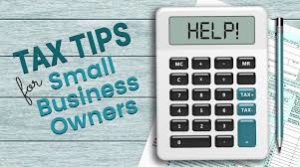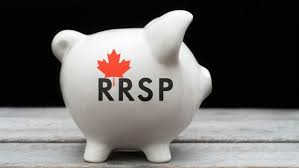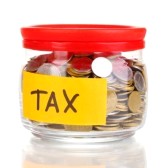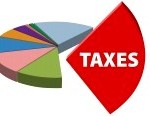 Small business owners never get a break – at least, it often feels that way. This is especially true when it comes to taxes as it often feels like the tax man gets small business owners coming and going. Examples of this include sales taxes, property taxes and then omnipresent income taxes. However, saving money on your small business taxes is not an impossible dream and below are some tips to make sure you end up with more money in the bank even after tax season.
Small business owners never get a break – at least, it often feels that way. This is especially true when it comes to taxes as it often feels like the tax man gets small business owners coming and going. Examples of this include sales taxes, property taxes and then omnipresent income taxes. However, saving money on your small business taxes is not an impossible dream and below are some tips to make sure you end up with more money in the bank even after tax season.
tax savings
 We’re nearing the end of the 2017 RRSP deadline, and if you haven’t already done so, you may be considering topping up your RRSPs before March 1st. In order to avoid over-contribution penalties, it is wise to have a good understanding of exactly how much you can contribute into your RRSP. Below are some steps to follow before making any further RRSP contributions.
We’re nearing the end of the 2017 RRSP deadline, and if you haven’t already done so, you may be considering topping up your RRSPs before March 1st. In order to avoid over-contribution penalties, it is wise to have a good understanding of exactly how much you can contribute into your RRSP. Below are some steps to follow before making any further RRSP contributions.
 Every year at tax time consciousness shifts toward saving money on the inevitable tax payments we make. Each person’s tax circumstances are unique, with some filers reporting by way of conventional W-2 forms and others accounting for self-employed income as required by the IRS. While each filer wants to pay his or her share; almost no one wants to make additional contributions, beyond what they rightfully owe.
Every year at tax time consciousness shifts toward saving money on the inevitable tax payments we make. Each person’s tax circumstances are unique, with some filers reporting by way of conventional W-2 forms and others accounting for self-employed income as required by the IRS. While each filer wants to pay his or her share; almost no one wants to make additional contributions, beyond what they rightfully owe.
The numbers aren’t set in stone until you complete the paperwork and tabulate your tax obligation. But in the meantime, saving money on your taxes requires a proactive approach, using proven methods to stay on the right track.
 Once the new year begins it won’t be long before you start having to sweat over your taxes. Nobody wants to be thinking about taxes right now, especially with the holidays approaching, but now is the best time for you to take action to ensure you trim the most off your tax burden next year. After all, it will be this year’s financial decisions that affect what you will be paying in just a few short months. With gift buying stresses, bad weather, and the day-to-day annoyances that occur no matter what time of year it is, you probably don’t want to be thinking about taxes. But if not before the taxable year is over, when?
Once the new year begins it won’t be long before you start having to sweat over your taxes. Nobody wants to be thinking about taxes right now, especially with the holidays approaching, but now is the best time for you to take action to ensure you trim the most off your tax burden next year. After all, it will be this year’s financial decisions that affect what you will be paying in just a few short months. With gift buying stresses, bad weather, and the day-to-day annoyances that occur no matter what time of year it is, you probably don’t want to be thinking about taxes. But if not before the taxable year is over, when?
Remember Brian Mulroney: The Voluntary Disclosure Program allows taxpayers to correct previous tax returns if they have failed to report income. Mr. Mulroney used this program to disclose unreported income.
Don’t wait: If the Canada Revenue Agency has already initiated action against you, it is too late to use the Voluntary Disclosure program. You have to inform the CRA first.
